Sponsor a Child in Africa
In Africa we currently care for nearly 16,000 sponsored children in 142 SOS Children's Villages. Over 700,000 people are supported through our other projects.
Our other projects include our education projects, such as SOS Schools, and community based projects, such as Family Strengthening Programmes. Healthcare is provided by many SOS Medical Centres. In Africa, HIV/AIDS is continuing to affect millions in Africa, and we provide specialist programmes to try and prevent the rise in AIDS orphans. Emergency Relief Programmes, such as our famine relief programme in Niger, or our Refugee programme in Chad (neighbouring the Sudan), have helped many families continue to live their lives in trying times.
SOS Africa Child Sponsorship
Northern Africa
Algeria
Following a major earthquake in Algeria in 1980, SOS Children offered to build a community to help victims of the catastrophe, for which the government provided the land. In 1984, a new agreement was signed between the Algerian government and SOS Children which led to the construction of an SOS Children's Village in Draria, a suburb of Algiers. It was completed in 1990.
Egypt
There are currently three SOS Children's Villages in Egypt. All are located near to the densely populated Nile Delta to the north of the country.
Morocco
We began working in Morocco in 1985 when the first SOS Children's Village was established at Ait-Ourir, about 40 km from Marrakesh at the foot of the Atlas Mountains. There are now five SOS Children's Villages in Morocco.
Tunisia
SOS Children has three communities in Tunisia. We opened our first SOS Children's Village in Siliana in 1983.Sub-Saharan Africa
Angola
SOS Children began its work in Angola in 1994 with the construction of an SOS Children's Village in the southern town of Lubango. At the same time, we set up a wide-reaching vaccination programme against meningitis, an illness from which hundreds of children were dying.
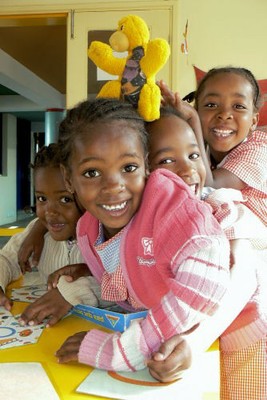 Benin
Benin
The acute need for care facilities for orphaned and abandoned children led to the construction of our first SOS Children's Village in Benin in 1987 at Abomey-Calavi.
Botswana
In Botswana, there are three SOS Children's Villages. The most recent SOS Children's Village is in Serowe, about 250km north east of the capital Gabarone. There are 12 family homes for 120 orphaned and abandoned children and an SOS Nursery.
Burkina Faso
The small republic of Burkina Faso in West Africa is one of the poorest countries in the world. Negotiations between the government and our charity to build an SOS Children's Village in Burkina Faso began in the 1980s, but due to political unrest it was not until 1997 that the first children moved into the Village in the small community of Polosgo, 10 km north of the capital city, Ouagadougou.
Burundi
In Burundi, A lack of basic social services and limited economic opportunities mean most of the people are subject to continuing disease, trauma and displacement. The fifth SOS Children’s Village opened in 2009 in Cibitoke.
Cameroon
SOS Children currently run two SOS Children's Villages in Cameroon. One is near the capital Yaoundé, the other is in the coastal town of Douala.
Cape Verde
At present there are two SOS Children's Villages in Cape Verde, in Assomada and Sao Domingos.
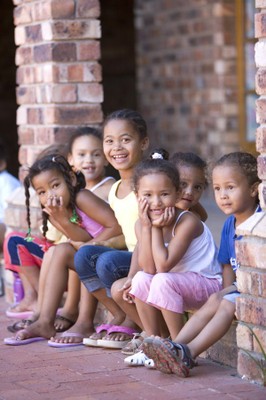 Central African Republic
Central African Republic
Due to the increasing need for our work a second SOS Children’s Village opened in Central African Republic (CAR) in 2009. SOS Children’s Village Bouar in western CAR has 12 family houses for 120 children.
Chad
As a response to the crisis in Darfur, Sudan, SOS Children ran an Emergency Relief Programme in Bahai in Chad, to support children and families. SOS Children provides psycho-social support to children, who are often traumatized by their experiences. There is also an SOS Children's Village in the capital N'Djamena.
Democratic Republic of the Congo (DRC)
In Democratic Republic of Congo we help children in three SOS Children's Villages. Bukavu and Uvira are in the east of the country, near the border, and there is a village in Kinshasa, the capital.
Côte d’Ivoire (Ivory Coast)
In Ivory Coast, about 7% of the adult population is affected by HIV/AIDS and about one-third of all orphans - 310,000 - have become orphans as a result of HIV/AIDS. We currently run two SOS Children's Villages in the country.
Equatorial Guinea
Despite some wealth from recently discovered oil deposits, in Equatorial Guinea most of the population live below the poverty line. There is currently one SOS Children's Village in Bata.
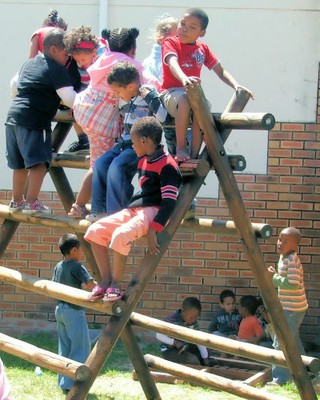 Ethiopia
Ethiopia
Thousands of children in Ethiopia have been orphaned or abandoned due to HIV/AIDS. We currently run seven SOS Children's Villages in the country, alongside Family Strengthening Programmes, SOS Schools and SOS Medical Centres.
Gambia, The
Supporters from the UK funded the construction of SOS Children's Village Basse, in the Gambia. Outside of Basse, there is an SOS Children's Village in Bakoteh, near the capital Banjul.
Ghana
In Ghana, we run a special International College in Tema, which provides qualifications including the International Baccalaureate to youngsters from around Africa, including non-SOS children. Furthermore, there are four SOS Children's Villages in the south of the country.
Guinea
Guinea in south-west Africa is among the poorest countries on the African continent, with very weak human resources and low social development. A third SOS Children's Village, together with an SOS Nursery and a SOS Primary School, opened in Kankan, the country's second biggest city, in 2005. It has twelve family houses which are home to 120 children.
Guinea Bissau
Guinea Bissau is one of the poorest countries in the world. Health conditions and rates of infant mortality, life expectancy and literacy are poor even by West African standards. We have two SOS Children's Villages in the country, including one in the capital Bissau.
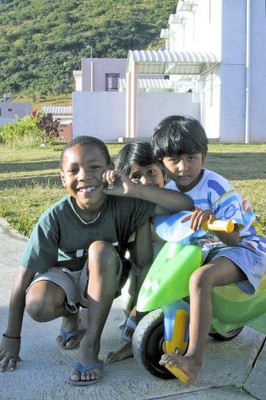 Kenya
Kenya
At present we support over 6,500 people in Kenya through our SOS Children's Villages and other work. We provide healthcare, education and community support to those in need.
Lesotho
SOS Children has been working in Lesotho since 1992 when construction started on the SOS Children’s Village in the capital, Maseru. Completion was delayed by political unrest and fighting between rival army factions, and the Village finally opened in 1994. A second Village opened in Quthing in 2010.
Liberia
According to UNICEF, the rate of prevalence of HIV/AIDS among the adult population of Liberia is 6%. There are estimated to be over 36,000 orphans as a result of HIV/AIDS. SOS Children in Liberia has developed Family Strengthening Programmes to help prevent abandonment. The SOS Social Centre and the SOS Medical Centre in Monrovia work to support over 11,500 vulnerable children and their families in the Greater Monrovia area.
Madagascar
In Madagascar, a high annual population growth rate and subsequent migration of people from rural areas in search of employment has increased the problems in urban areas. There has been a growth of large slum areas where many children live on the streets. There are currently three SOS Children's Villages in the country.
Malawi
Malawi is one of the ten poorest countries in the world: more than a third of the population are illiterate and life expectancy is around 47 years, with a high rate of infant mortality. Three SOS Children's Villages, Lilongwe, Blantyre and Mzuzu, run in the country.
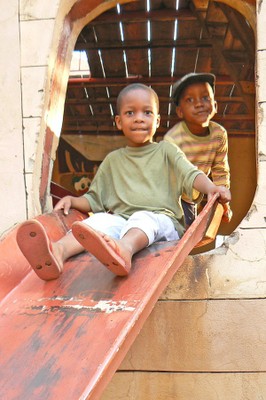 Mali
Mali
In 2003/2004 regions of Mali faced famine as a result of poor crop yields and locust invasions. The employees of SOS Children's Village Mopti distributed basic foodstuffs and other relief goods (90 tons of millet, 3 tons of milk, 400 cartons of biscuits, 25 tons of fodder and 17 tons of seeds) to 570 families with 2,200 children in 16 villages to help them. SOS Children's Villages Mopti and Sanankoroba are in the country.
Mauritius
The island of Mauritius is in the Indian Ocean, about 800km east of the island of Madagascar, off the coast of East Africa. A former British colony, it became independent in 1968. It is one of the most densely populated countries in the world with 585 inhabitants per square kilometre. There are two SOS Children's Villages: Beau Bassin and Bambous.
Mozambique
Since the Civil War in Mozambique, the country has recovered somewhat. However, the benefits of the economic recovery are available to only a few and 80 per cent of the population continues to live in absolute poverty.
Namibia
We began our work in Namibia in 1985 when the first SOS Children's Village was built on the outskirts of Windhoek on the banks of the Arebush River. A second village was later opened in Tsumeb.
Niger
In March 2010, an Emergency Relief Programme was set up in Tahoua to help relieve the suffering caused by the long term famine in Niger. About 9,000 children, many of them orphans, benefited from the distribution of food supplies and the medical treatment of conditions caused by malnourishment. A third SOS Children's Village opened in Dosso in 2010.
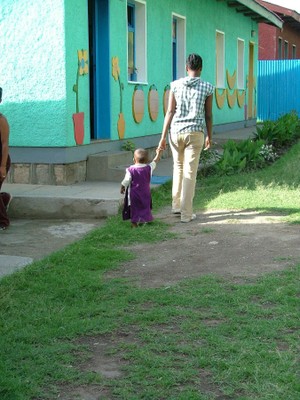 Nigeria
Nigeria
There are four SOS Children's Villages in Nigeria caring for children across the country.
Rwanda
Rwanda is still recovering from the genocide in the 1990s. SOS Children has been working in the country since before the civil war. There are four SOS Children's Villages in the country.
Senegal
In Senegal there are four SOS Children's Villages. In August 2005 heavy rainfall caused devastating flooding in Dakar and Kaolack. SOS Children cooperated with the government to start an Emergency Relief Programme and provided the affected families with basic food, medicine, mattresses, mosquito nets etc. This programme ended in December 2005 having supported 1,130 children in 326 families.
Sierra Leone
We started our work in Sierra Leone in 1974 when SOS Children's Village Freetown opened on the edge of the city. Since then, civil war has threatened the country's stability. The situation is getting better, and there are now three SOS Children's Villages in the country.
Somalia
Since 1985 we have had a continued presence in Mogadishu and maintained our operations (with some temporary closures) throughout the civil war until the present day. In Somalia, we have also maintained a good relationship with UN agencies, international NGOs, local authorities, community elders and leaders in the project area and we have constructive partnerships with ECHO (EU Humanitarian Office), UNICEF, the World Health Organisation and the World Food Programme.
Somaliland
We have been working in Somaliland since 1999. There is currently one SOS Children's Village in the autonomous region, in Hargeisa, and one SOS Secondary School. There are also two SOS Medical Centres and one SOS Social Centre.
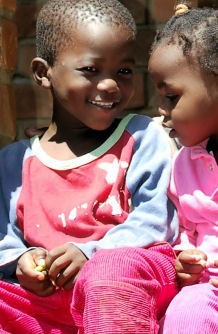 South Africa
South Africa
Our charity has been active in South Africa since the early 1980s when our first SOS Children’s Village opened in Ennerdale.
As part of “6 villages for 2006”, SOS Children’s joint 2006 World Cup campaign with FIFA, an eighth village was opened in late 2006 in Rustenburg. One of the houses was funded by Tottenham Hotspurs FC.
South Africa, like many African countries, is strongly affected by HIV/AIDS. Community outreach programmes have been established at all eight SOS Children's Villages to provide practical support and aid for children and families in the neighbourhood.
South Sudan
South Sudan became independent from Sudan in 2011. There is one SOS Children's Village in South Sudan, in Malakal. This Children's Village opened in 2002.
Sudan, The
Despite the signing of a peace deal in 2005, the
conflict, unrest and suffering in Sudan continues. SOS Children has been
active in Sudan since 1978 and continues to support refugees, child
soldiers and families affected by the conflict. There is one SOS Children's Village in the country.
Swaziland
There are three SOS Children's Villages in Swaziland. In 2001 SOS Children developed a community based child care and support programme for families in Mbabane and since April 2002, a food programme has been running in the province of Hluthi in the vicinity of the SOS Children's Village Nhlangano. The third SOS Children's Village opened in Siteki in 2010.
Tanzania
The United Republic of Tanzania is one of the few countries in the conflict-ridden Great Lakes Region that continues to enjoy uninterrupted peace, but its socio-economic development is being threatened by HIV/AIDS. Our third SOS Children’s Village in Tanzania opened in Dar Es Salaam in 2006. There is an SOS Children's Village on the island of Zanzibar.
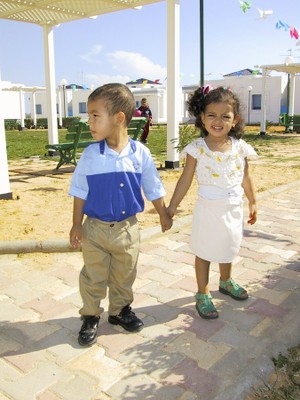 Togo
Togo
SOS Children began its work in Togo during the 1970s when the first SOS Children's Village was built in the capital, Lomé. A third Village was opened in Dapaong in 2007.
Uganda
Our fourth SOS Children's Village opened in Uganda in 2010. We work across the country helping the poorest children.
Zambia
In Zambia, our most recent SOS Children's Village opened in Chipata in 2012. Chipata is in the far east of the country near the Malawi and Mozambican borders. Over 70% of households in Chipata are caring for orphans, and in a large percentage of these already-struggling households, HIV/AIDS is a problem.
Zimbabwe
UNICEF estimates that one-fifth (1.3 million) of all children are orphans in Zimbabwe, largely because of the HIV/AIDS epidemic. More than half of all new HIV/AIDS infections are among young people, primarily girls. We have three SOS Children's Villages in Zimbabwe and run several community programmes.
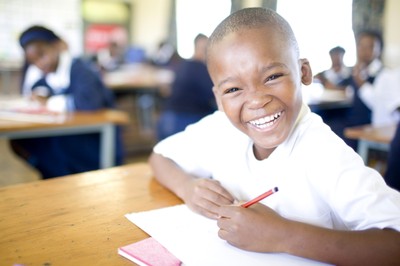 The Story of SOS Child Sponsorship in Africa
The Story of SOS Child Sponsorship in Africa
SOS Children worked in Asia and the Americas before Africa, but our work has grown and become well established in most African countries. In 1971 the opening of an SOS Children's Village in Abobo Gare in Côte d'Ivoire (Ivory Coast) marked the beginning of our work in Africa.
Over the time that SOS Children has been active in Africa, disasters and war have time and time again required a quick reaction to help those most in danger. Sometimes providing emergency relief led SOS Children to begin its activities in a country. Kind donors who contributed to help with the emergencies often become child sponsors supporting permanent facilities which followed the short-term and medium-term relief efforts.
There have been disasters such as the complete collapse of any state order in Somalia at the beginning of the 1990s. SOS Children remained in the country throughout the chaos. For a while, SOS Children was the only organisation active in the country. As well as an SOS Children's Village, where it is still possible to sponsor children, SOS Children now runs a well-respected mother and child clinic in Mogadishu.
Other tragedies unfolded in Ethiopia, Mozambique, Angola, the Democratic Republic of Congo and Sudan. SOS Children is still active in all of these countries. In some cases, staff members risked their own lives to protect the children or help those in need.
In Rwanda nine children and nine staff members could not be saved during the three months of continual genocide in 1994.
In 1999 children, mothers and staff members from SOS Children's Village Bo in Sierra Leone were repeatedly forced into hiding in order to survive.
In Liberia, more than 8,000 people fled to SOS premises near the capital Monrovia in 2003 when fighting broke out.
SOS Children launched an Emergency Relief Programme in Algeria following a severe earthquake in May 2003.
Mali faced a problematic food supply situation as a result of poor crop yields and locust invasions in the 2003/2004 season. Based in the SOS Children's Village in Socoura near Mopti, SOS employees distributed food and milk to 570 families with 2,200 children in 16 villages to help them get through the crisis.
In 2005 up to a third of Niger's population suffered from food scarcity. Every day children died from under nourishment. SOS Children started an Emergency Relief Programme for children in danger of dying from acute starvation in the region of Tahoua.
SOS Children also focuses on improving the school infrastructure in the catchment area of projects. Africa has more of our SOS Schools than other continents, but the number of pupils is comparable to that in Asia.
There is a special International College in Tema, Ghana, where talented pupils from the whole of Africa can gain good qualifications at College so they can go to University. The college focuses on education in pan-African matters, which is intended to promote understanding and solidarity between African countries.
If there is no local school for the children near to where the SOS Children's Village is built, we build one and children from the local community can attend it. An example of this is in the Ouagadougou Village in Burkina Faso, where an SOS Nursery was built in September 1997. This nursery is very popular with the children in the neighbourhood who attend together with the SOS children.
As the SOS children get older, it is important that they have the chance to experience living independently. In Botswana older children move to a 'halfway house', an SOS Youth Home, where they are responsible for their own shopping, cooking, cleaning, budgeting and school work. Many youths still re-visit their SOS Children's Village to catch up with their SOS mother and other friends.
The children from different SOS Children's Villages in Africa often come together to have fun and make friends. For example in Tema, Ghana a total of 750 children and young people from Ghana, Benin and Nigeria met up to play a football tournament.
HIV/AIDS represents one of the greatest threats to many African countries, particularly those south of the Sahara, which includes countries like South Africa. This is one of the main reasons why in recent years SOS Children has been improving and extending its family support, community-based projects and social work to care for and protect vulnerable children and educate people about the risks of HIV and AIDS.
The fight against HIV/AIDS is a priority at SOS Children's Village Gitega, Burundi. At the SOS School a 'Stop-AIDS Club' was created in 2004 for children aged between eleven and twelve. This was designed to teach the children what HIV/AIDS is, and also to inform them about means of protection.
There is also awareness raising about another life threatening disease: Malaria. In Bakoteh, in the Gambia, a representative from the National Malaria Control Programme was invited to talk about how malaria (a curable and preventable disease) kills more than a million people each year. Most of them are children under five.
Along with preventative medicine, we build and staff SOS Medical Centres to directly treat patients. The SOS Medical Centre in Mbalmayo near the capital of Yaoundé in Cameroon is attached to the SOS Children's Village, and provides the population with general medical care as well as preventative health counselling.

 Return to Schools Wikipedia Home page…
Return to Schools Wikipedia Home page…
